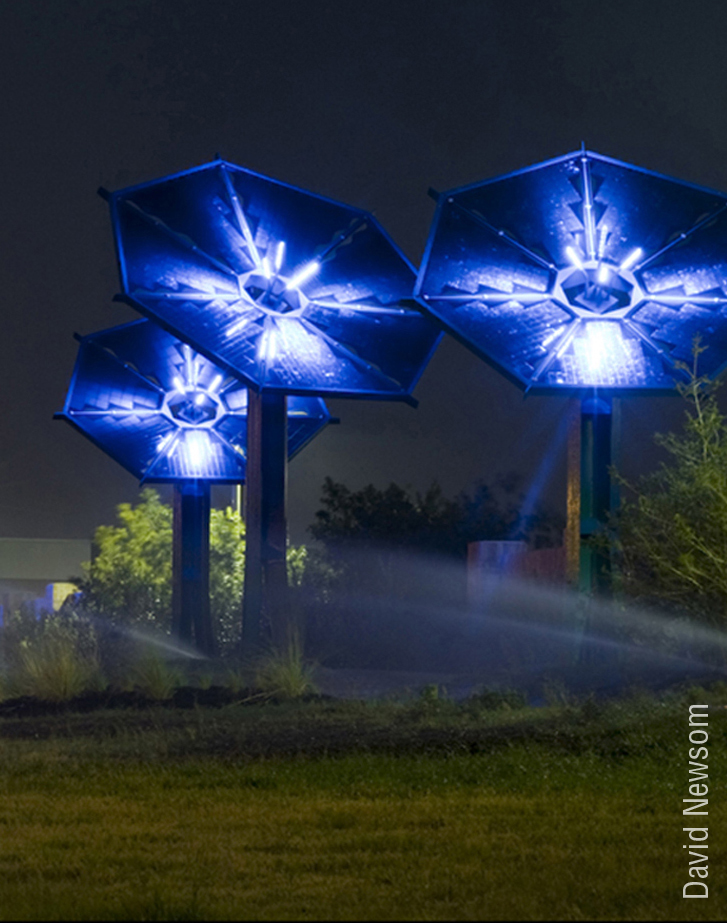Craft students across the nation are rising to the challenge of climate change, using their powerful visual voices to offer hope and inspiration for achieving a sustainable future.
Thanks to generous support from the Windgate Foundation, Honoring the Future launched a Fellowship and Award Program to recognize and provide financial support to, these emerging and highly talented artists.
Today we are pleased to announce the awardees.
Amy Hoagland, a graduate student at the University of Colorado Boulder, is the Fellowship awardee. She will receive a $10,000 grant.
Four students were recognized with Honorable Mention awards of $1,000 each: Mitch Frank from Cranbrook Academy of Art, Adam Berman from East Carolina University, Alexis Deane from the University of Wisconsin-Madison, and Alison Evans, who recently graduated from the Tyler School of Art and Architecture at Temple University.
Collectively, these students embrace a variety of craft media, processes and environmental themes.
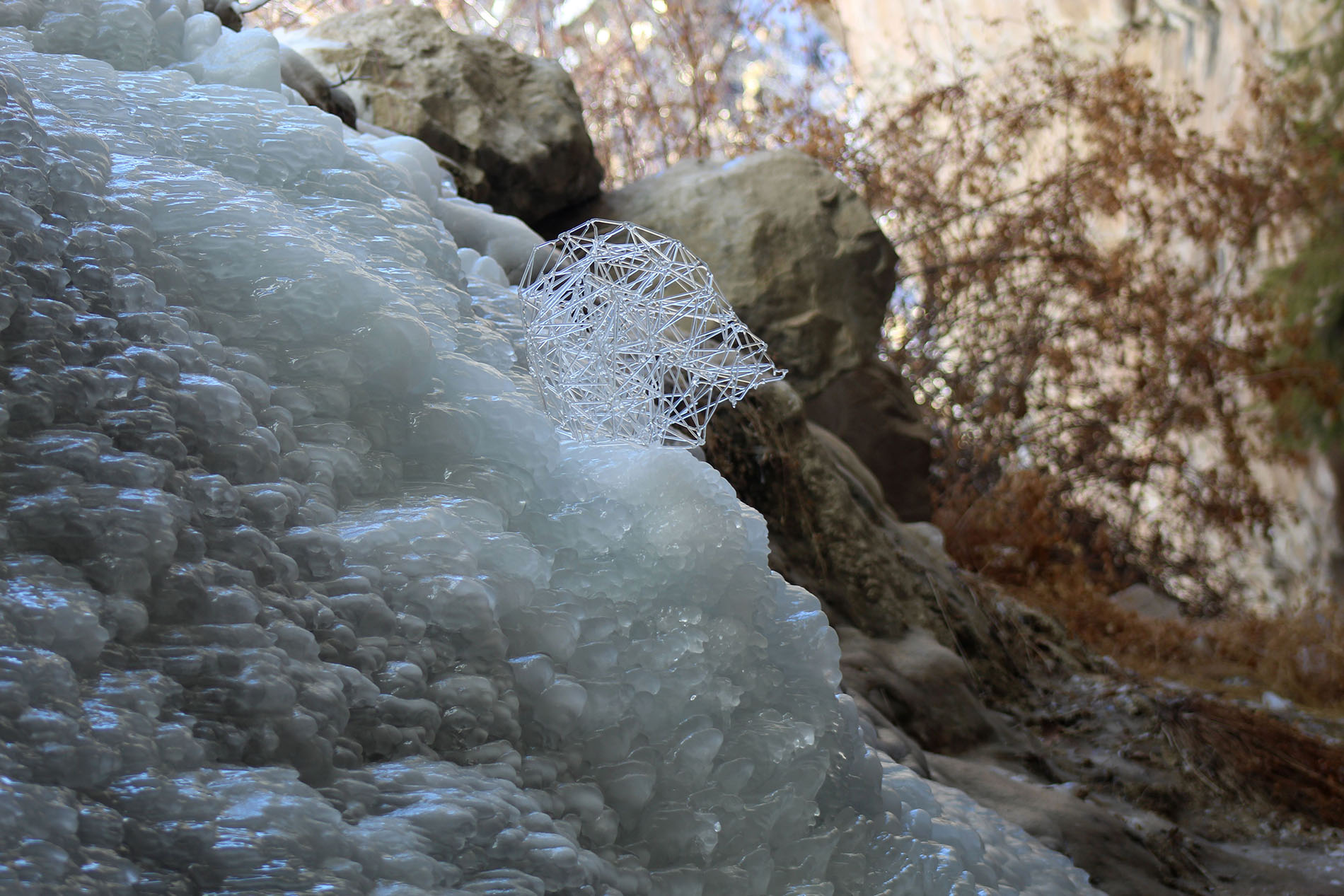
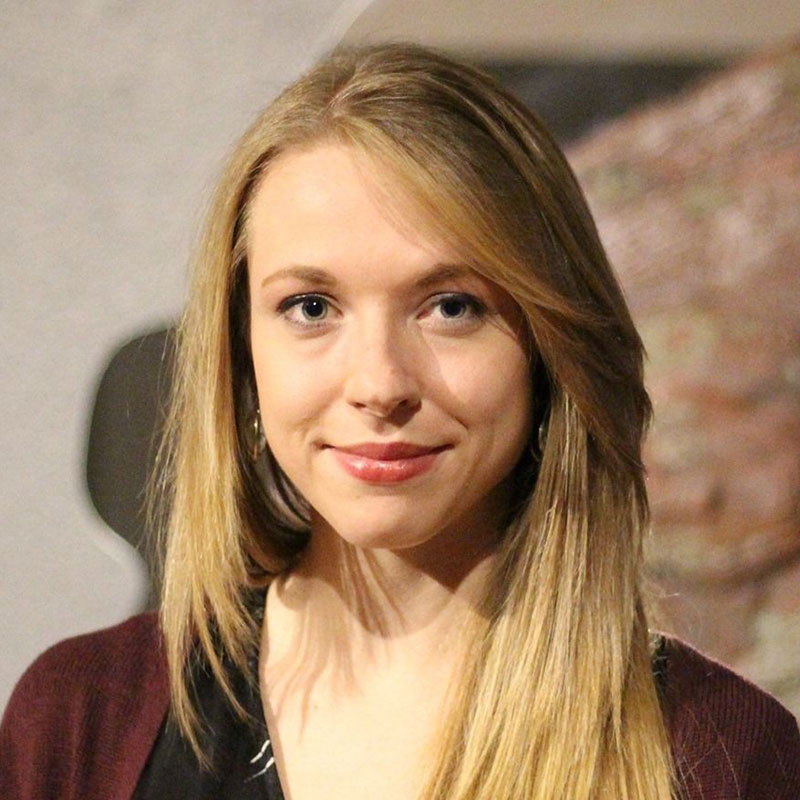 Amy Hoagland pairs traditional craft-making disciplines (glassmaking, metalworking and papermaking) with new technological tools, such as 3D scans, to create powerful, thought-provoking imagery about our changing climate.
Amy Hoagland pairs traditional craft-making disciplines (glassmaking, metalworking and papermaking) with new technological tools, such as 3D scans, to create powerful, thought-provoking imagery about our changing climate.
Amy elaborates, “My art embraces the entanglement of humans with their more-than-human surroundings. It challenges the perception that nature is outside of human society. I seek to create new ways of seeing and conversing about our position within nature, evoking an empathy that is crucial in a landscape demanding human change.”
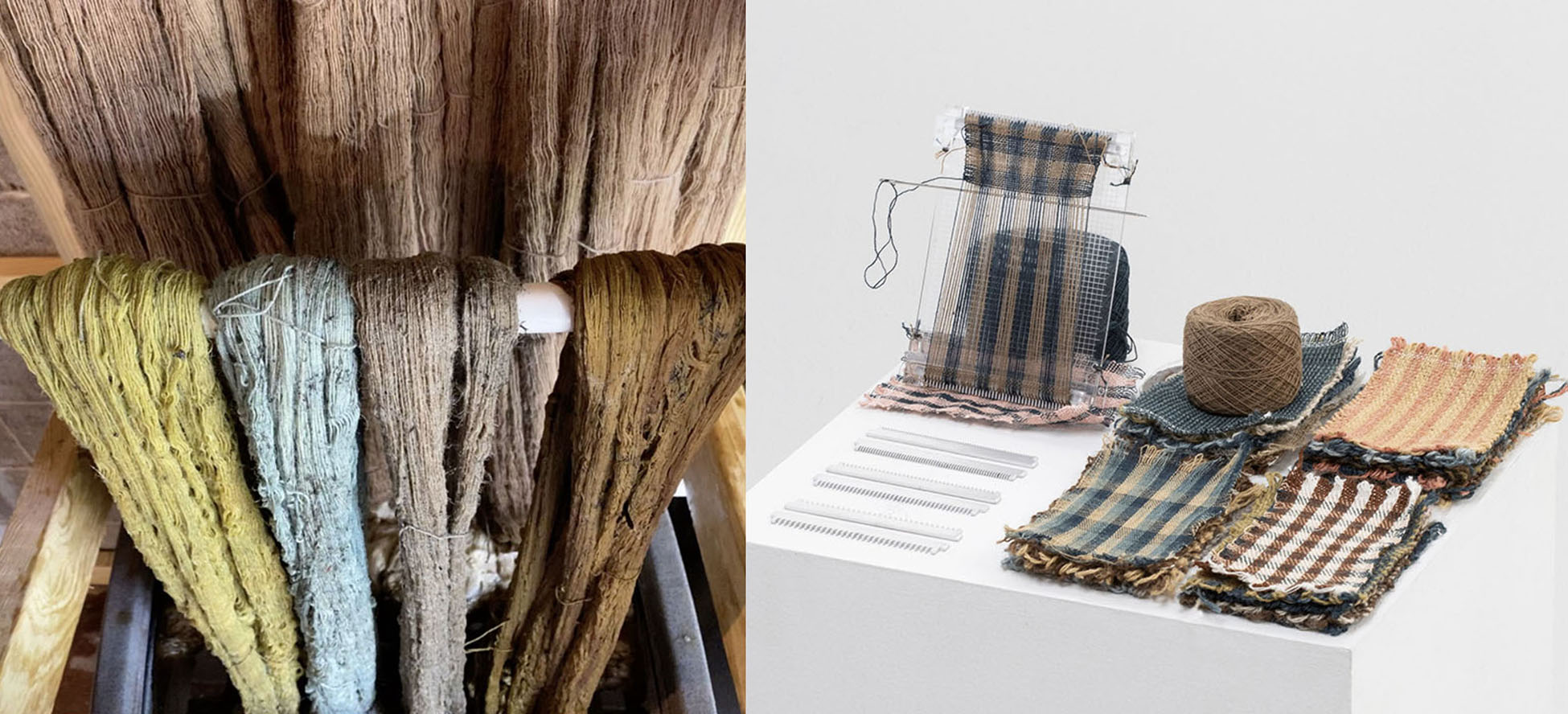
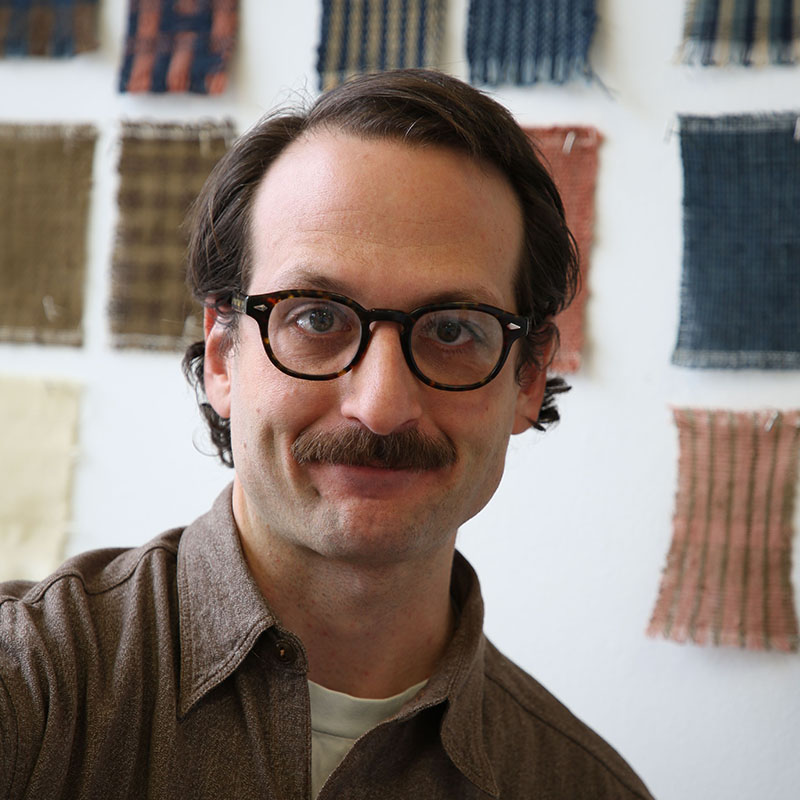 Mitch Frank is designing an apparel collection that is sustainably produced from beginning to end. He designed both a waste-saving handloom (for weaving fabric samples) and a solar powered dye bath.
Mitch Frank is designing an apparel collection that is sustainably produced from beginning to end. He designed both a waste-saving handloom (for weaving fabric samples) and a solar powered dye bath.
Mitch observes, “My clothes are inspired by the ethic of workwear, intended for comfort and long use. Each stage (spinning, dyeing, weaving, and sewing) is a work of craft in itself; my efforts to examine and reduce environmental impact permeate each one, connecting them to a deeply considerate making process.”
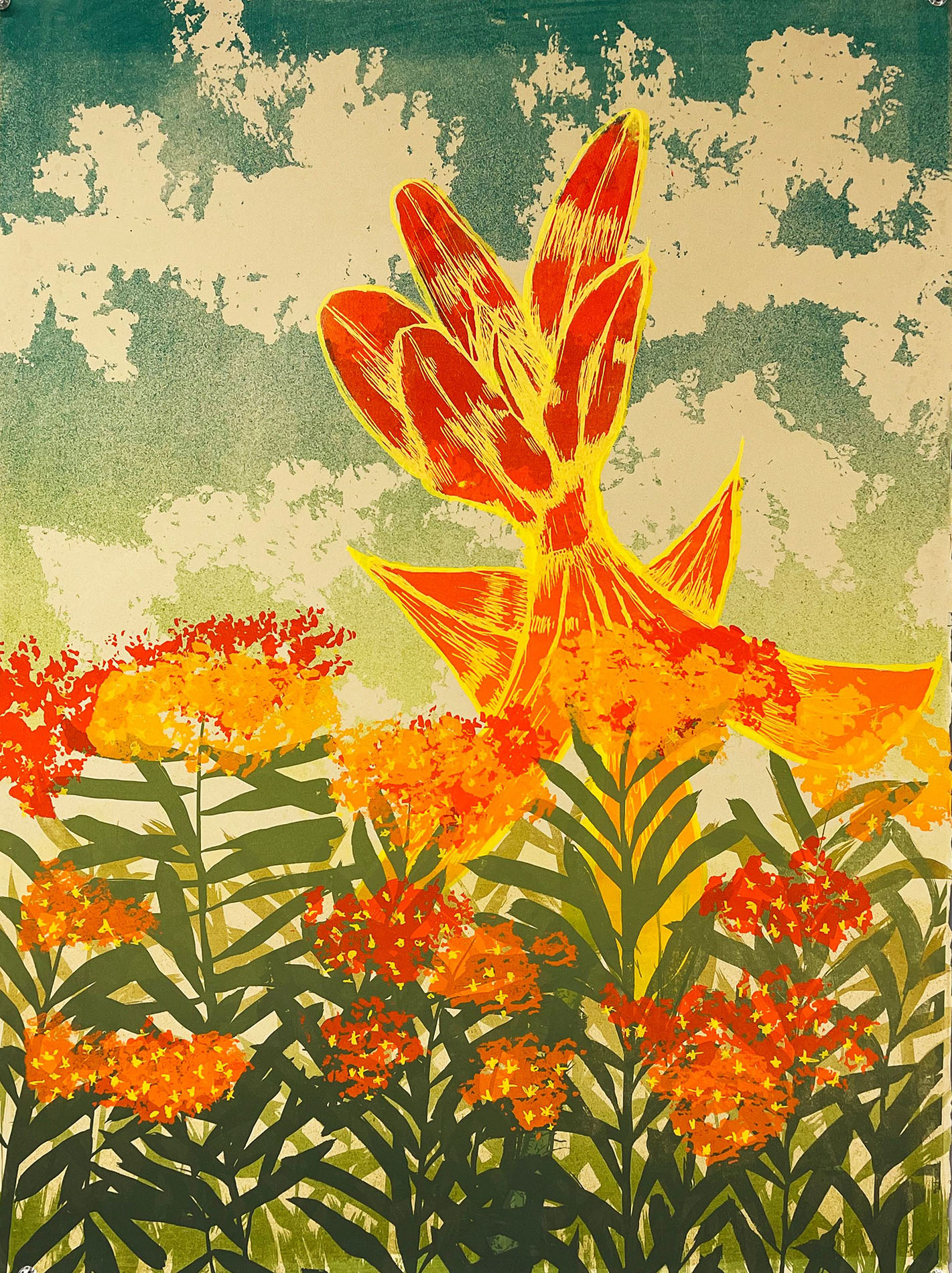
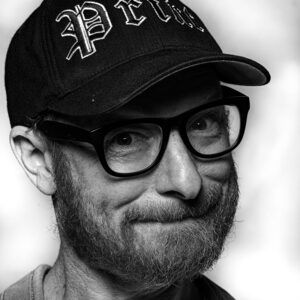 Adam Berman’s print and papermaking seeks to counter “plant blindness,” our failure to pay attention to the plants around us, which desensitizes us from recognizing the importance of plants to our ecosystem and our lives. Plants are both the raw material for his prints’ paper and dyes as well as the subject of his eye-catching, curiosity-cultivating craft.
Adam Berman’s print and papermaking seeks to counter “plant blindness,” our failure to pay attention to the plants around us, which desensitizes us from recognizing the importance of plants to our ecosystem and our lives. Plants are both the raw material for his prints’ paper and dyes as well as the subject of his eye-catching, curiosity-cultivating craft.
Adam explains, “We have moved from an agrarian society to a society of people who perform services. I believe it is important to stay in touch with our foundations in the natural world. If we don’t pay attention to plants, how can we expect to give adequate emphasis to plant conservation or environmental conservation?”

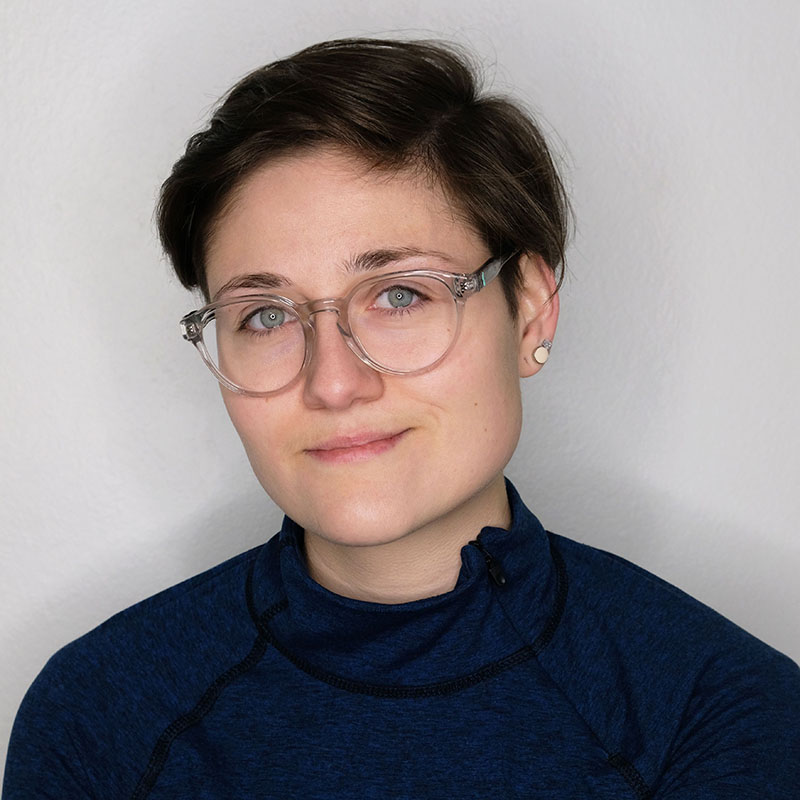 Alexis Deane’s “glass photographs” are castings of riverbed samples from North Carolina’s French Broad River. They illustrate the difference between the intricate, highly textured bed of the headwaters and the scoured out, more barren beds near urbanized and industrialized areas.
Alexis Deane’s “glass photographs” are castings of riverbed samples from North Carolina’s French Broad River. They illustrate the difference between the intricate, highly textured bed of the headwaters and the scoured out, more barren beds near urbanized and industrialized areas.
Alexis remarks, “As a child-bearing-aged body, I am interested in the relationship between reproductive health and environmental pollution. I focus on the ways in which the waterways of my childhood have been affected by past industry and the potential damage to the surrounding ecosystems and human population.”
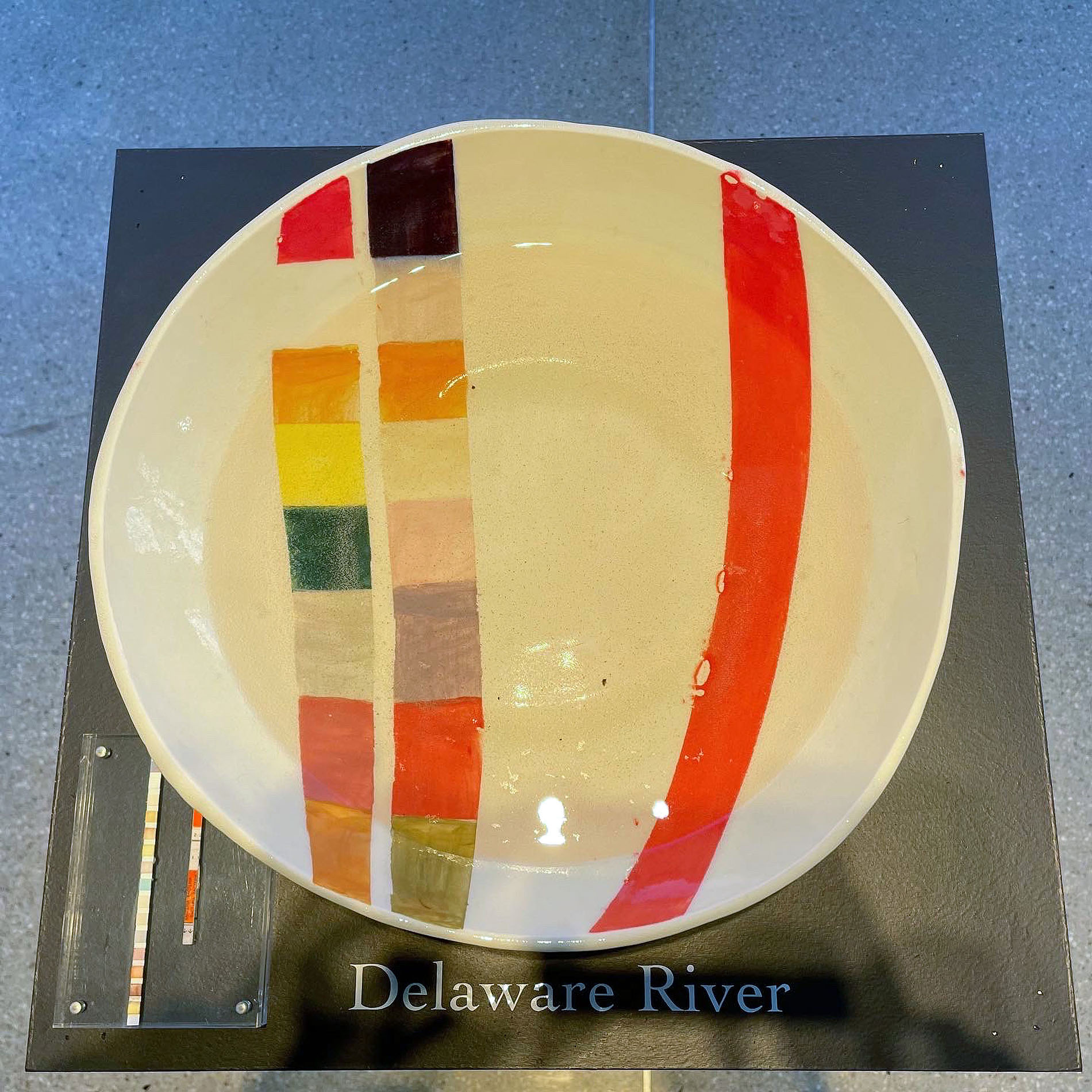
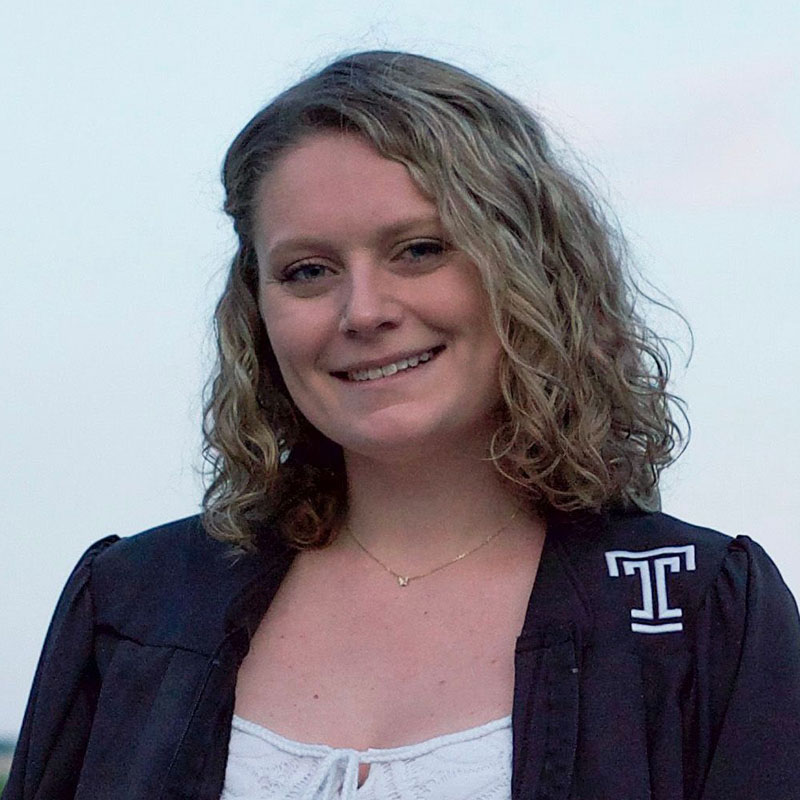 Alison Evans created a glass map of Philadelphia’s current waterways, layering it over a vintage 1876 map to show how humans have altered the City’s waters over time. She then waded into rivers and streams to collect and test water samples, creating a series of ceramic vessels color-coded to convey the bacteria and pollutant contamination levels of each sampled waterway.
Alison Evans created a glass map of Philadelphia’s current waterways, layering it over a vintage 1876 map to show how humans have altered the City’s waters over time. She then waded into rivers and streams to collect and test water samples, creating a series of ceramic vessels color-coded to convey the bacteria and pollutant contamination levels of each sampled waterway.
Alison notes, “My Water Works project explores Philadelphia’s historical and present relationship with the bodies of water surrounding the City. The project aims to educate the community about the levels of pollution that exist within the City’s waterways, enabling residents to advocate for waterway protection solutions, such as stormwater management, waste treatment planning, and green infrastructure.”
Three jurors selected the awardees: Lloyd Herman, Founding Director of the Smithsonian American Renwick Gallery; Wendy Maruyama, Professor Emerita of San Diego State University’s Woodworking and Furniture Design Program; and Fran Dubrowski, Honoring the Future Director.
Dubrowski observed: “These awardees have the potential, through art, to be cultural leaders on sustainability – at a time when our world sorely needs their creative guidance. We are proud to be among their supporters. And we look forward to seeing, and cheering for, their successes and accomplishments in the coming years.”

